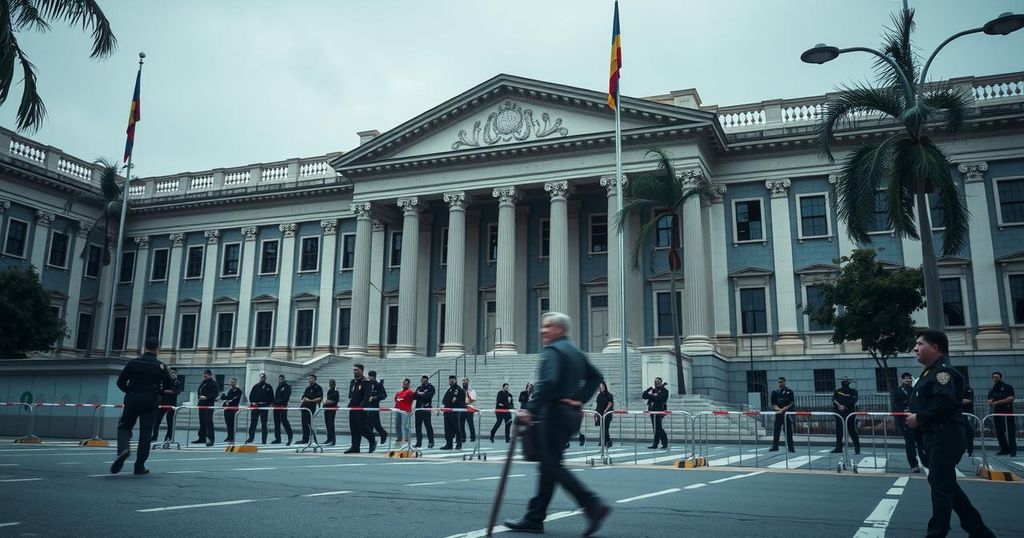Colombia Prepares for Protests Amid Labor Reform Controversy

Colombia’s Congress has increased security due to protests called by President Gustavo Petro against a delayed labor reform. Local authorities are restricting participation from government employees, leading to tensions with unions. Key labor and indigenous groups are organizing the protests, which also demand progress on health and pension reforms.
In anticipation of planned protests instigated by President Gustavo Petro, Colombia’s Congress has strengthened its security protocols. This action follows a senate commission’s decision to postpone a crucial labor reform, which Petro regards as vital. He has rallied labor unions, farmers, and his supporters to mobilize during the congressional vote on this reform.
Conservative Senate President Efrain Cepeda, a notable critic of President Petro, announced that access to the capitol building would be limited to congress members, state officials, and accredited members of the press. Senator Nadia Blel of the Conservative Party expressed concerns regarding the backlash faced by senators intending to vote against the labor reform, describing them as having been subjected to attacks and intimidation from the National Government.
In response to the protests, local authorities across Colombia’s major cities have declared their intention to prevent government employees from participating, exacerbating tensions with the unions. For instance, Bogotá’s Mayor Carlos Galan warned that teachers who are absent from work on the day of the protest may face unpaid leave, a stance opposed by the FECODE teacher’s union.
Labor Minister Antonio Sanguino has affirmed that his department will observe and address any efforts by employers to undermine employees’ rights to protest. He emphasized that employers are legally obliged to respect workers’ rights and dignity, ensuring they adhere to the Constitutional Court’s rulings against any acts that infringe upon these rights.
The protests, which are backed by various labor and indigenous organizations, are also calling for congressional action on essential health and pension reforms, highlighting the broader social concerns beyond the labor issue at hand.
In summary, security measures have been heightened in Colombia’s Congress in light of imminent protests spurred by President Gustavo Petro. The situation has led to conflicting actions from local authorities and unions regarding participation in demonstrations. With the backing of major unions and indigenous groups, these protests not only focus on the labor reform but also demand attention to critical health and pension issues. The ongoing tensions illustrate the complex interplay between government policy and social advocacy in Colombia.
Original Source: colombiareports.com







